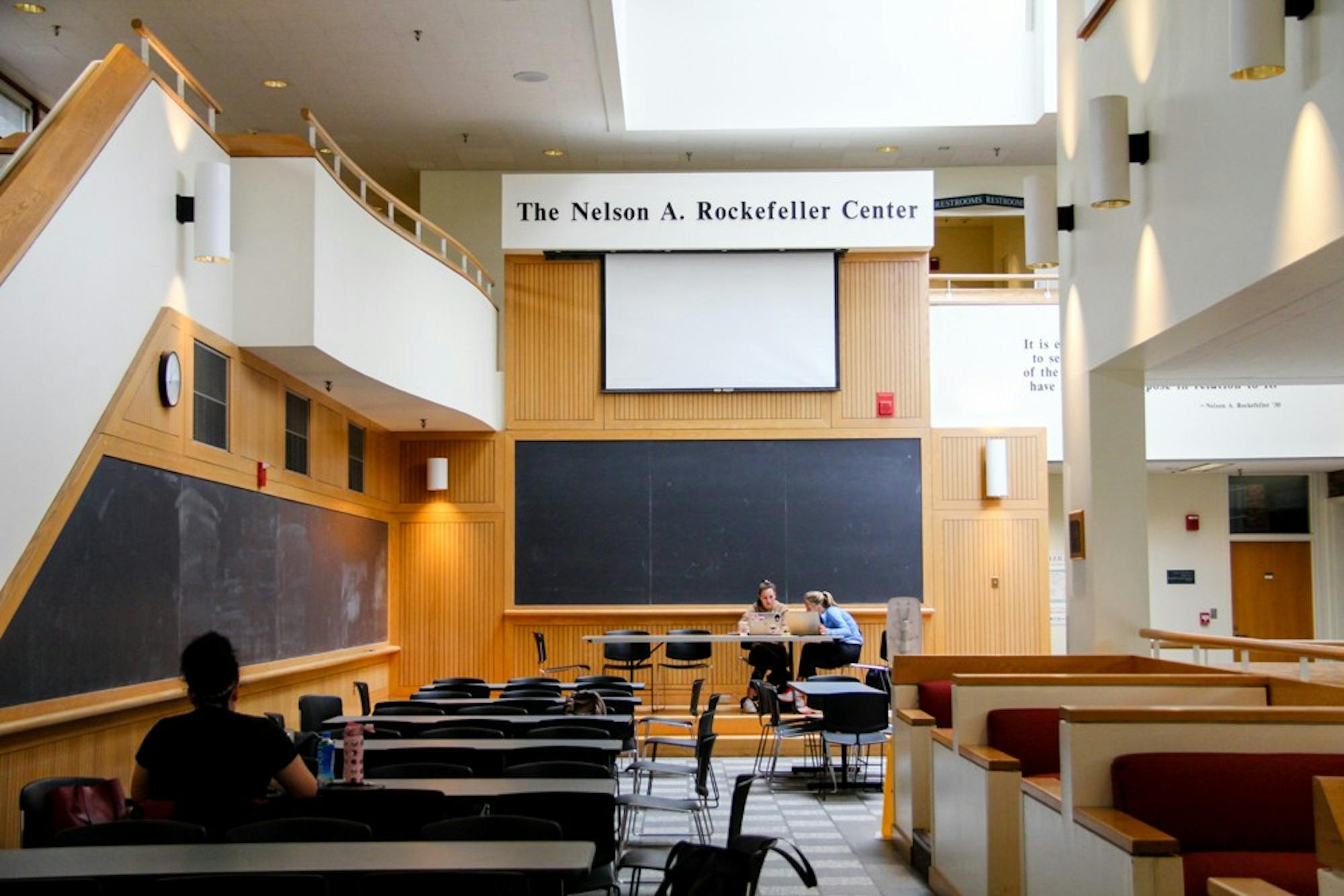On Monday evening, the Rockefeller Center for Public Policy hosted political consultant Andy Meyer for a behind-the-scenes look at political advertising. The event, “How Political Ads are Made…and How They Can Get Better,” was moderated by public policy professor Charles Wheelan. Approximately 40 people attended the discussion.
Meyer, a partner at AL Media, works with progressive candidates and organizations to create campaign materials in-house, from speeches to press releases. In his introduction, Meyer said that he feels “fortunate” that he is able to work with candidates and causes that he cares about. Along with heading more than 20 successful campaigns, Meyer also led the digital program for U.S. Senator Raphael Warnock in the 2020 Georgia Senate race, according to the AL Media website.
Meyer gave an hour-long lecture on political advertising, throughout which he shared career anecdotes. The lecture was followed by a Q&A session.
Meyer said that his approach to political advertising has changed since he entered the field in the early 2000s. The first campaign he worked on was former U.S. Senator Ken Salazar’s successful 2004 race for an open Senate seat in Colorado. During this time, Meyer worked on “oppositional research” against Pete Coors — a Republican Catholic candidate who opposed abortion. One advertisement which Meyer worked on used Coors’s pro-life stance to claim that Coors would object to executing Osama bin Laden if captured. According to Meyer, when Coors was interviewed about the advertisement, he said he would advocate for placing bin Laden in a 3x3 foot cell rather than sentencing him to death. Meyer said that this ad was early in his career — when he was 22 — and “it was not something [he] was proud of.”
According to Meyer, his current advertisements highlight positive name identification for candidates. Meyer said that the most effective ads are created during primaries because candidates are looking to distinguish themselves from other candidates in their same party.
“Every candidate has a different path to victory,” Meyer said.
In order to develop a campaign strategy, Meyer said that Al Media schedules a 90-minute “bio call” to meet with candidates and learn about their life.
Meyer said that throughout his career in the political media industry, there has been an influx of money into politics. He added that the biggest change to the political advertising landscape is how voters consume media, noting the transition from television-focused media to YouTube and other social media platforms. However, Meyer also noted that many YouTube advertisements are also seen on a television screen.
“I still believe there is no faster way to move people than a 30-second ad on a 60-inch TV,” Meyer said.
On the topic of changes in political advertising, Meyer said many political ads went “under the radar” on Facebook and alternative advertising mediums like Hulu. Following the 2016 election, Meyer said companies like Facebook and Google created departments to oversee political advertising hosted on their sites.
Meyer added that he does not believe the amount of money in political advertising is a problem. According to Meyer, Verizon and AT&T spend more money on their own advertising than the Democratic party does in federal elections.
“I was surprised when he spoke about money in politics as a good thing — I suppose that makes sense given his profession,” Zoe McGuirk ’25 said. “Especially working for democratic and leftist candidates, I wasn’t expecting him to so openly support more money in politics.”
Dara Casey ’25, who is involved with policy research with the Rockefeller Center, also said that the most notable part of the lecture were Meyer’s thoughts on money in politics.
“I think money honestly corrupts politics and it seems like a constant competition on both sides for who can raise the most money, even if that money is coming from unethical sources,” Casey said.
Casey also noted that she thought the longer form political ads which Meyer shared were especially creative. However, she said that even creativity might not sway the average viewer.
“But at the same time, if I was someone watching that ad, I don’t think it would have swayed me,” Casey said. “If that was on YouTube, I would have skipped it.”




